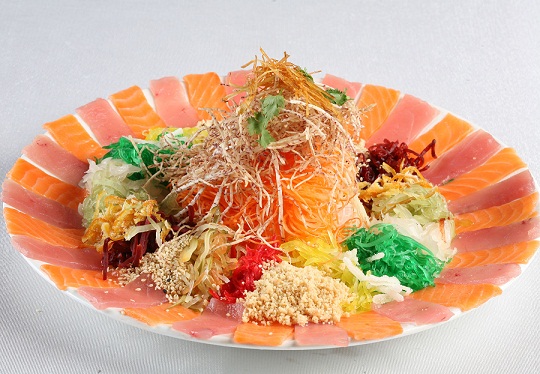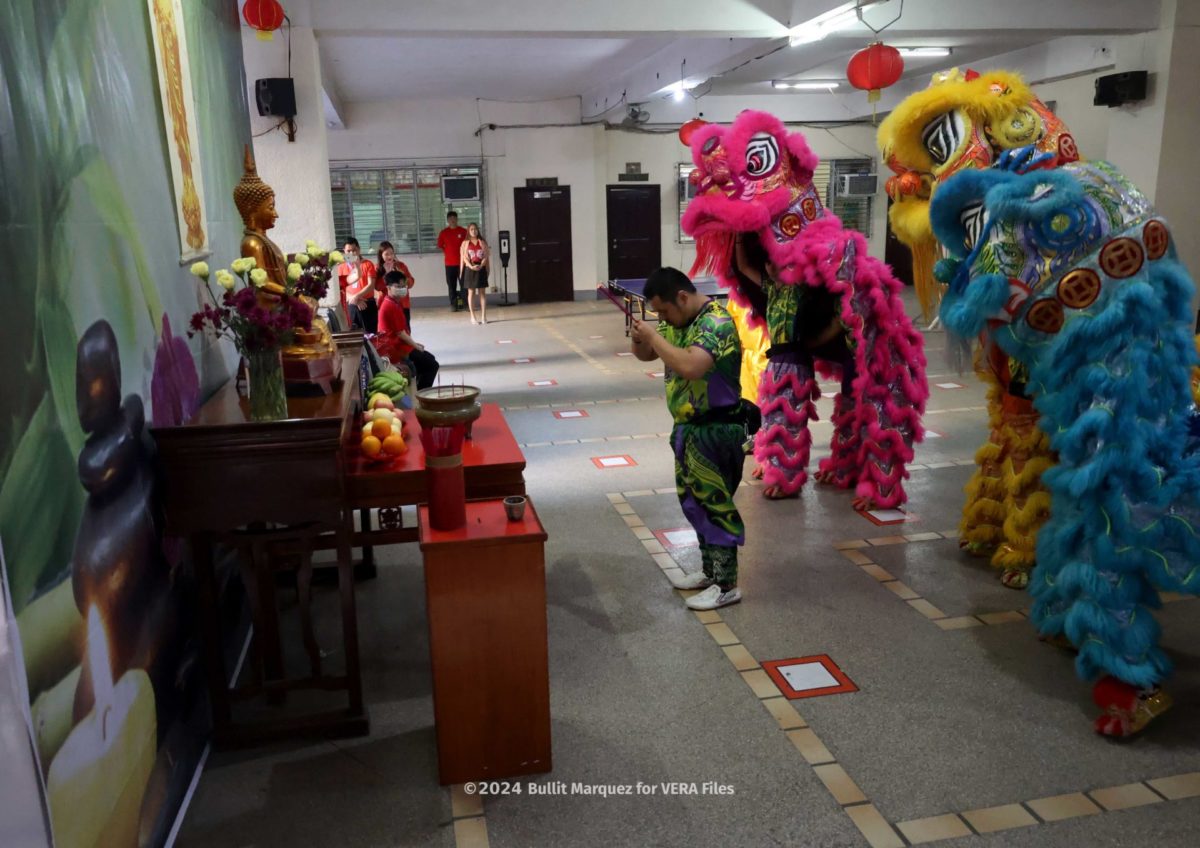By WINNIE VELASQUEZ
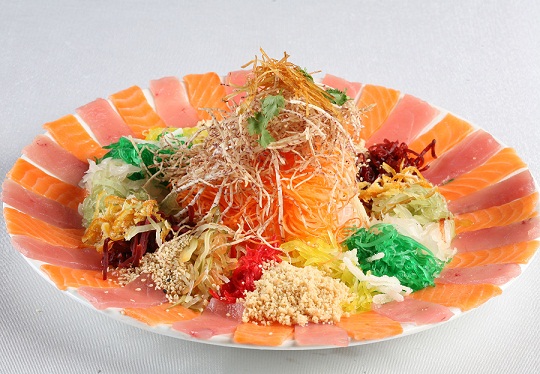 AS dragon and lion dancers usher in the Year of the Water Snake at around three in the afternoon Sunday, Feb 10, families and friends will gather to wish one another wealth, longevity, happiness and prosperity. And as cries of Gong Xi Fa Ca! rend the air, rituals steeped in centuries-old tradition will be observed around the city.
AS dragon and lion dancers usher in the Year of the Water Snake at around three in the afternoon Sunday, Feb 10, families and friends will gather to wish one another wealth, longevity, happiness and prosperity. And as cries of Gong Xi Fa Ca! rend the air, rituals steeped in centuries-old tradition will be observed around the city.
And food is the focal point of these ceremonies marking the start of the Lunar New Year also the onset of the Spring Festival. This celebratory feast of dishes deemed auspicious is shared to invoke blessings of good fortune, longevity, and good health on everyone who partake of it.
At Xin Tian Di, Crown Plaza Manila Galleria’s premier Chinese restaurant, Sam Lee, its executive Chinese chef has prepared eight essential auspicious dishes that will be rotated alongside the regular items on the menu until February 24. Among these are the Yu Sheng Salad, Braised African Abalone with Broccoli in Oyster Sauce, Tiger Prawns, Whole Fish, Braised Patatim with Sea Moss, Dried Scallop, Assorted Meat with Rice in Lotus Leaf, Dried Scallop, Dried Oyster, Nian Gao, Steamed Seafood dumpling with Shark’s Fin in Superior Stock, Sauteed Prawn Balls with XO Sauce, Deep Fried Crispy Tikoy, and Chocolate Buchi.
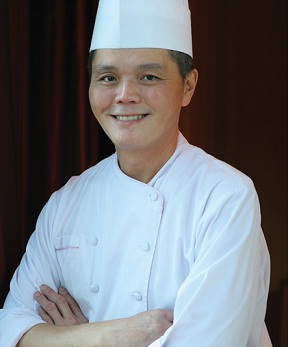 A Singaporean Chinese, Chef Lee says that the menu at Xin Tian Di is a fusion of East and West but done in the Chinese way. “Every year there is a standard dish in the Chinese New Year menu, the Yu Sheng Salad. Literally meaning raw fish, yusheng sounds like the Chinese word that means an increase in abundance. The Chinese living in Singapore and Malaysia love to eat this during the Chinese New Year because it is a symbol of abundance, prosperity, and good fortune.”
A Singaporean Chinese, Chef Lee says that the menu at Xin Tian Di is a fusion of East and West but done in the Chinese way. “Every year there is a standard dish in the Chinese New Year menu, the Yu Sheng Salad. Literally meaning raw fish, yusheng sounds like the Chinese word that means an increase in abundance. The Chinese living in Singapore and Malaysia love to eat this during the Chinese New Year because it is a symbol of abundance, prosperity, and good fortune.”
The Yu Sheng Salad is an Asian-style salad with various shredded vegetables and served with assorted toppings, a sweet plum sauce and slices of raw fish (usually salmon sashimi or mackerel). Each ingredient added is carefully chosen because there is a corresponding auspicious greeting with it.
Ingredients of the Yu Sheng salad consists of red items: carrot, red yam and red ginger; green items: cucumber and greem yam; white radish or daikon; pok chui crackers; pomelo; cinnamon powder; Chinese five-spice powder; plim sauce; crushed roasted peanuts; roasted sesame seeds; olive oil; white pepper powder; raw fish slices; and abalone slices.
There is a ritual that accompanies the Yu Sheng Salad, Chef Sam explains. An appetizer to raise “good luck” for the New Year, the ceremony known as lo hei or tossing the salad, it calls for all diners to gather in a circle and say a Chinese greeting when the salad is put on the table. This is followed by an auspicious greeting for each ingredient. The shredded ingredients are mixed together then diners take their chopsticks and toss the salad into the air while saying out loud their auspicious wishes to signal the start of a prosperous New Year. The higher the ingredients are tossed, the better to have those wishes granted, the chef adds.
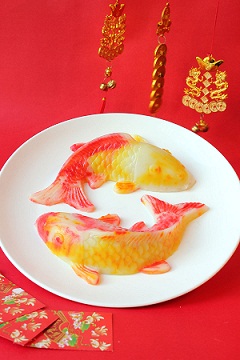 Chef Sam says that for the Year of the Water Snake, he has prepared for diners at Xin Tian Di special dishes that will make their celebration meaningful and give them a different culinary adventure. He cites among these the Assorted Meat with Rice in Lotus Leaf. To lovers of Chinese food this is the familiar machang that is a staple is many Chinese and delis but Chef Sam gives it a festive twist. “The assorted meats for this dish – liver sausage, Chinese sausage, and preserved pork – are all ordered from a regular supplier in Hong Kong. This way, we can be sure that the dish is nhas just the right blend of flavors. It is believed that combining these three will bring good luck and the family will stay together through several generations,” he says.
Chef Sam says that for the Year of the Water Snake, he has prepared for diners at Xin Tian Di special dishes that will make their celebration meaningful and give them a different culinary adventure. He cites among these the Assorted Meat with Rice in Lotus Leaf. To lovers of Chinese food this is the familiar machang that is a staple is many Chinese and delis but Chef Sam gives it a festive twist. “The assorted meats for this dish – liver sausage, Chinese sausage, and preserved pork – are all ordered from a regular supplier in Hong Kong. This way, we can be sure that the dish is nhas just the right blend of flavors. It is believed that combining these three will bring good luck and the family will stay together through several generations,” he says.
Then to cap this sumptuous spread, the chef surprises diners with a wholly different preparation of two very common items in the Chinese menu: the ubiquitous tikoy and buchi. The tikoy is deep fried and crispy and comes with a hint of honey. “Usually tikoy is dipped in egg and fried so that it comes out oily and soggy, not a very good end to a fine meal. I decided to deep fry it and with its crispy coating it becomes something really special. And if diners are expecting buchi with its red munggo filling and and orange coating, they are in for a sweet surprise in our buchi with chocolate filling and a light brown coating,” Chef Sam says.
After partaking of the lavish Chinese New Year feast at Xin Tian Di and calling forth auspicious wishes for the New Year, visitors to the hotel can send blessings of good fortune to their loved ones and friends with the tikoy. Just like its other offerings, the tikoy at Crown Plaza is not the usual round glutinous sweet treat. Instead, it is colored and shaped like the Koi, another harbinger of good luck. Gong Xi Fa Ca!
